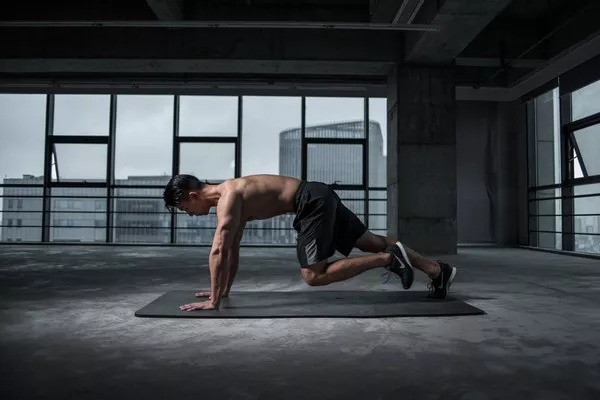Despite the challenges of fasting during Ramadan, fitness enthusiasts in Jeddah are staying dedicated to their workout routines, utilizing the holy month as an opportunity to maintain their health and well-being. While iftar spreads of sugary, calorie-rich foods can be tempting, many residents are ensuring they keep up with their fitness goals by exercising before or after breaking their fast.
This Ramadan, a growing trend has emerged, with both men and women taking to open spaces for workouts just before iftar. Activities like walking, jogging, cycling, running, and even boxing are helping them stay active while reaping the physical benefits of exercise.
Tariq Abdulmajeed, a 42-year-old Jeddah resident, has been walking daily along the Tahlia pathway before iftar. He shared with Arab News that this is a highly effective way to stay fit during Ramadan: “It’s the perfect time for fitness. Walking before breaking the fast enhances physical and muscular capacity, ultimately improving overall fitness.”
While many are committed to maintaining their fitness, experts advise caution. Nasser Al-Saadi, a fitness expert, emphasized that Ramadan is not the time to push physical limits or set new records. “Treat it as a time to maintain your health,” he explained, urging people to avoid intense workouts that could harm their health. Al-Saadi suggests lighter exercises, such as walking or stretching, for 30 to 60 minutes before iftar to avoid dehydration while still benefiting from fat-burning effects.
After iftar, when the body is replenished with fluids and nutrients, is generally considered an optimal time for more intense exercise. With an increasing number of residents training during the hours just before and after iftar, local gyms in Jeddah are seeing higher attendance during Ramadan.
Mahmoud Abdul Raziq, a coach at Ultimate Power Gym, noted, “Many people come to the gym with the goal of maintaining their health throughout Ramadan, but this discipline should extend throughout the entire year.” He has observed a high level of commitment from fasting clients, many of whom are determined to challenge themselves both physically and mentally. Group classes at his gym are scheduled two hours before and after iftar, in line with recommendations for fat loss and muscle gain.
Many gym-goers are focusing on goals such as losing excess body fat, maintaining muscle mass, and toning their bodies. Some prefer to work out just before their fast ends, timing their exercise to finish just in time for iftar or to break their fast in the gym with a date and water.
Rayan Abu Hamza, 34, who has been training before iftar since the start of Ramadan, explained, “I prefer working out before iftar because the gym is less crowded, and I can make the most of my session.”
Others, like Saad Al-Zahrani, also favor exercising before iftar. “It gives me more strength and helps me avoid feeling lazy,” he said. However, Syrian expatriate Tawfiq Hamawi prefers to work out later in the day. “I can only train after iftar due to my work hours, and this timing allows my body to replenish before physical exertion,” he explained.
Whether it’s walking outdoors, attending group classes, or working out individually, Jeddah residents are balancing their health goals with the traditions of Ramadan, proving that fasting doesn’t have to mean putting fitness on hold. For these committed locals, the holy month is not a time to pause their fitness journey but to adapt and stay on track.
Related Topics
































